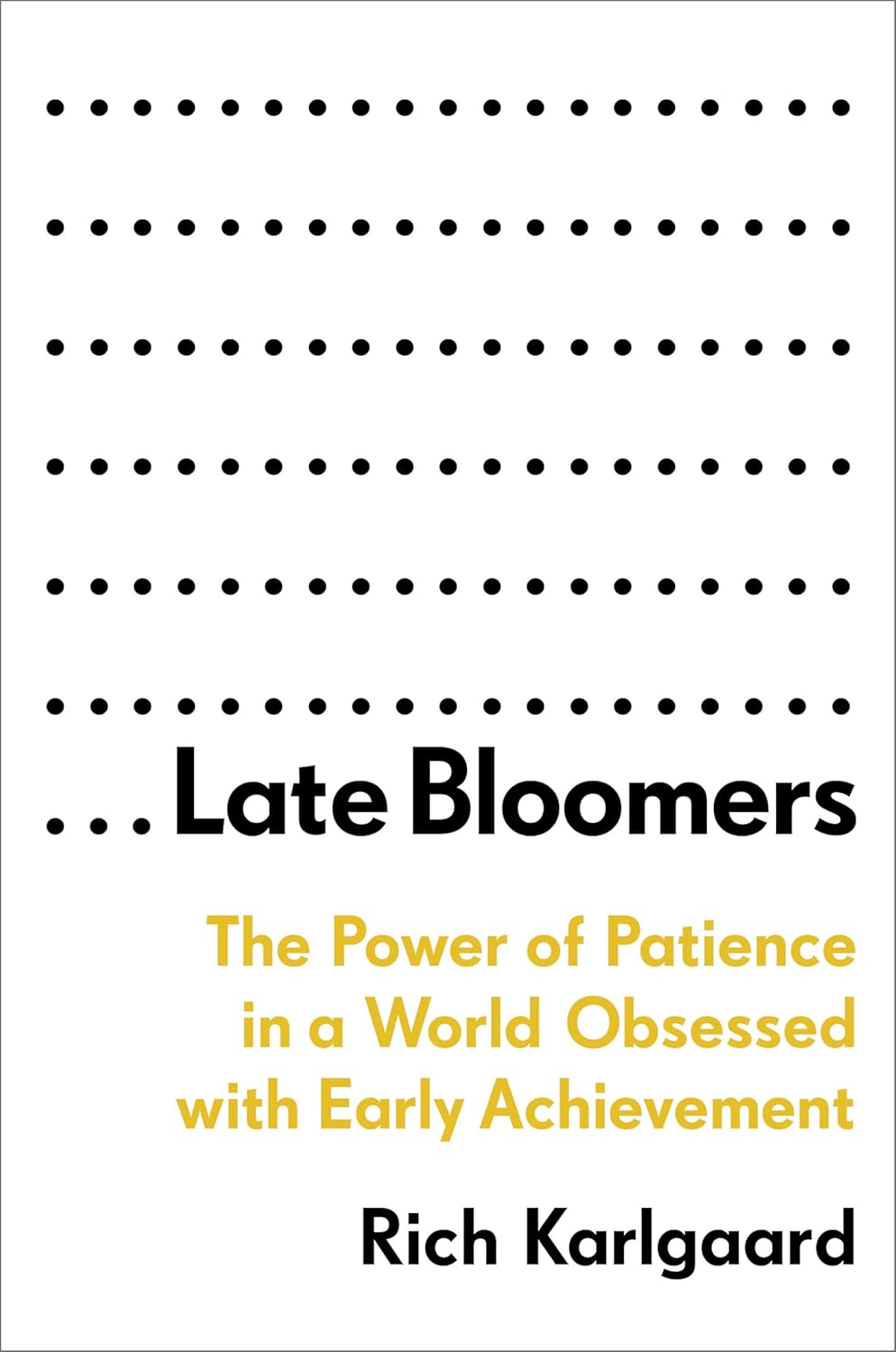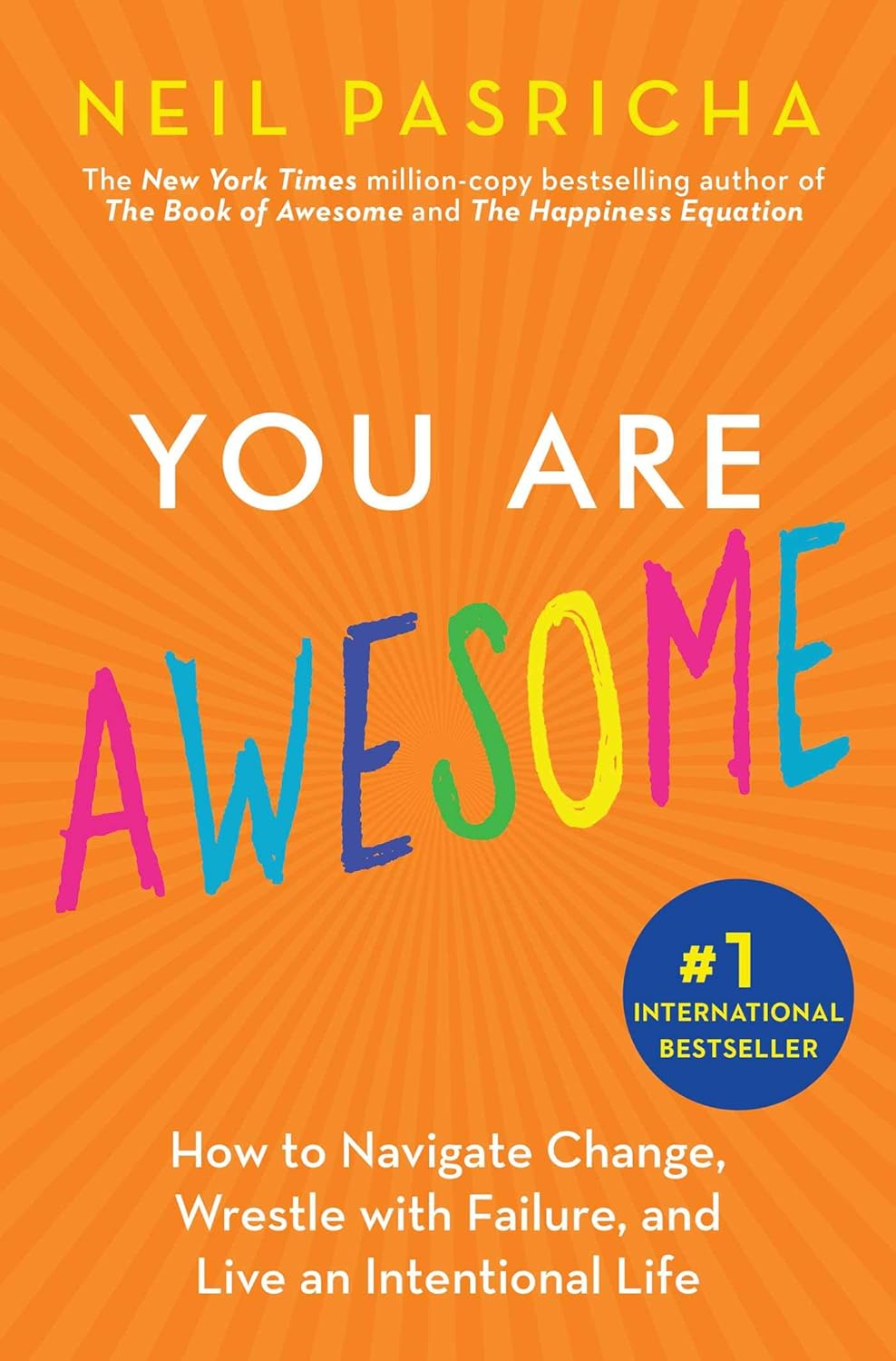Much of our society today looks to early success as the only type of success and hypes it as the thing we all need to achieve1. If you're not an early success, then forget about it. This is where Late Bloomers by Rich Karlgaard is here to make some changes to the early success narrative by highlighting stories of late bloomers2 because many of us are late bloomers.
According to Karlgaard a late bloomer is someone that fulfills their potential later than expected, sometimes with talents that weren't even visible at first3. The book is broken down into 4 main sections. Chapters 1 and 2 are all about how we got to this worship of early bloomers. Chapter 3 explains the neuroscience behind success with late bloomers. Chapter 4 explains the specific gifts that late bloomers have which will be lacking in early achievers. The rest of the book focuses on the gifts that late bloomers have to help them succeed.
The Cost of Pushing for Early Success
Similar to You Are Awesome, Late Bloomers says that the push towards early success is building fragile people that can't deal with any type of failure4. Adults don't allow kids to do things just for fun, it all has to be in service of getting into the right college so that they can succeed (see also Kids These Days for similar ideas).
Adults also give kids little time to be kids as we push for SAT scores and study time to continue to get ahead5.
In pursuit of early blooming — to get the highest possible test scores and GPA’s, be admitted to the best college, and enter the right career track — we give young adults precious little time to be kids. 6
Kinder Development
Karlgaard calls us to be kinder in our expectations around brain development and tells us about emerging adulthood. This phase of life is used to explore new things and is happening in the mid-to-late 20's now7. Similar ideas are seen in Leaders Eat Last (I'll review that in a future post). To this I wonder if the new stage is emerging in life because we never give teens a chance at "trail adulthood" where they can test their boundaries and responsibility. That idea does seem to be supported in Kids These Days, and Leaders Eat Last, among other things I've read in the last year.
Strengths of Late Bloomers
This section of the book starts with the essential argument made in Range, that coming to something late means we have more diverse experience to draw on and bring more value because of this experience.
Another interesting strength according to Karlgaard is that late bloomers have more compassion and empathy at work. They've tried and failed at things throughout their teens and 20's as they didn't hit the train to early success. When they see colleagues faced with challenges, they are more likely to understand the struggle and come alongside their colleagues to help them8. Late bloomers failure to get on the early success train also makes them more resilient to failures because they have failed and learned that they had to just keep putting one foot in front of the other9.
The final strength I'll highlight is that late bloomers have more wisdom10. Wisdom doesn't come from achievement, it comes from experience and often experience with failure is the greatest wisdom bringer. Late bloomers have more experience when they hit their stride and thus more wisdom.
Should You Read Late Bloomers by Rich Karlgaard?
Fortunately, if we patiently stick with a pursuit or a passion, if we persist, we all have an opportunity to make great breakthroughs at any point in our lives. Many “overnight successes” finally breakthrough after twenty, thirty, or even fifty years of trying. 11
I enjoyed reading Late Bloomers. I found the argument compelling and the writing style informative without being overly research heavy. There were plenty of citations for the work, and many of the other things I've read in the last year lined up with the ideas in Late Bloomers.
If you're worried that you're not hitting success fast enough, this book is a good one to help you reset that expectation, and the final chapters give you a bunch of ideas to help you "repot yourself in a garden that suits your skills"12.

